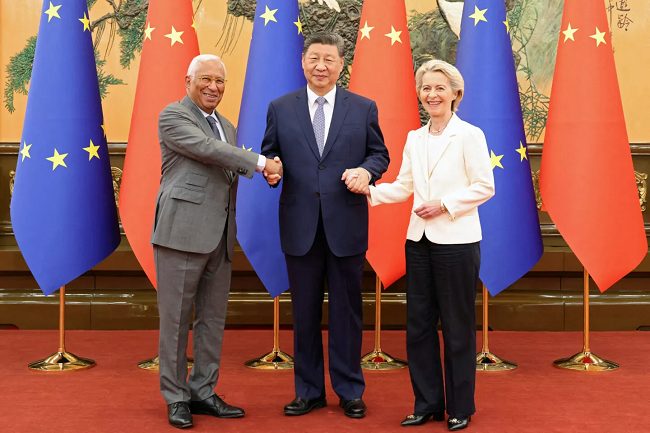In what looks like a rare demonstration of global alignment, the European Union and China on Thursday, July 24, 2025, issued a joint statement reaffirming their commitment to climate cooperation, green trade, and the Paris Agreement. Amid rising geopolitical tensions, the statement positions climate action as a crucial area of continued collaboration between two of the world’s largest economies.

The announcement followed a high-level visit to Beijing by European Commission President, Ursula von der Leyen, and European Council President, António Costa, who met with Chinese President, Xi Jinping, and other senior officials on Thursday. As the United States steps back from international climate diplomacy, the EU–China statement signals a clear intent to reinforce global ambition and multilateral cooperation.
Notably, the statement comes just one day after the International Court of Justice handed down a landmark ruling reinforcing states’ legal obligations to protect people from the impacts of climate change.
Key elements of the EU-China joint statement include:
- The EU and China call for “policy continuity and stability” among major economies and a clear “step up” in efforts to address climate change, signaling the need for more ambitious 2035 NDCs. Both parties confirm their intent to submit updated 2035 NDCs (national climate plans) before COP30, covering all sectors and greenhouse gases, aligned with the 1.5°C goal.
- Reaffirming the UNFCCC and Paris Agreement as the cornerstone of international climate cooperation.
- Emphasising that climate collaboration holds “great and special significance” for upholding multilateralism and global climate governance.
- Noting a “solid foundation and broad space” for deepening green cooperation, even amid rising trade tensions. The EU and China commit to enhanced bilateral cooperation in areas such as the energy transition and green economy.
In a reaction, Andreas Sieber, Associate Director of Policy and Campaigns at 350.org, says: “This joint statement offers a timely stabilising signal in an increasingly fragmented geopolitical landscape and the United States’ withdrawal from climate diplomacy. While this statement reflects a welcome willingness for cooperation, real and ambitious action must follow. Current ambition remains far too low. With COP30 fast approaching, the EU and China must go beyond committing to update their climate targets. Drawing the line for global heating at 1.5°C will require urgent, credible action, not just diplomatic symbolism.”
